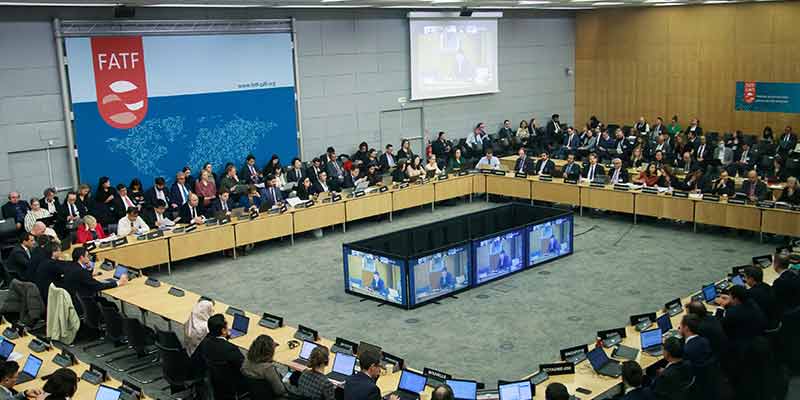- World
- Feb 25
FATF suspends Russia’s membership
• The Financial Action Task Force (FATF) suspended Russia’s membership, saying Moscow’s war in Ukraine violated the organisation’s principles.
• This is the first time a member of FATF is suspended.
• It will monitor the situation and consider at each of its plenary meetings whether the grounds exist for lifting or modifying restrictions.
• The decision was taken in the second plenary of the FATF under the presidency of T. Raja Kumar of Singapore. Delegates from over 200 jurisdictions of the global network participated in the discussions at the FATF headquarters in Paris.
• The global watchdog on terror financing added South Africa and Nigeria to its “Grey List” of countries under special scrutiny to implement standards to prevent money laundering and terrorism financing.
• South Africa is the second G20 economy after Turkey to have been added to the FATF “Grey List”. Iran, North Korea and Myanmar are blacklisted.
• The decision indicates to global banks, financial institutions and investors that these countries are not fully compliant with anti-money laundering and terrorist financing standards.
• FATF has removed Morocco and Cambodia from its “Grey List” of countries.
What is the FATF?
• The FATF is an inter-governmental body established in 1989 by the ministers of its member jurisdictions.
• The objectives of the FATF are to set standards and promote effective implementation of legal, regulatory and operational measures for combating money laundering, terrorist financing and other related threats to the integrity of the international financial system.
• The FATF is a policymaking body that works to generate the necessary political will to bring about national legislative and regulatory reforms in these areas.
• The FATF currently has 39 members including two regional organisations — the European Commission and Gulf Cooperation Council.
• India is a member of the FATF consultations and its Asia Pacific Group.
The FATF has two types of lists:
1) High Risk Jurisdictions Subject to a Call for Action (Black List)
2) Jurisdictions under Increased Monitoring (Grey List).
1) Black List
• High-risk jurisdictions have significant strategic deficiencies in their regimes to counter money laundering, terrorist financing, and financing of proliferation.
• This list is referred to as the ‘Black List’.
• For all countries identified as high-risk, the FATF calls on all members and urges all jurisdictions to apply enhanced due diligence, and, in the most serious cases, countries are called upon to apply counter-measures to protect the international financial system from the money laundering, terrorist financing, and proliferation financing risks emanating from the country.
• Iran, North Korea and Myanmar are on the FATF Black List.
2) Grey List
• Jurisdictions under increased monitoring are actively working with the FATF to address strategic deficiencies in their regimes to counter money laundering, terrorist financing, and proliferation financing.
• When the FATF places a jurisdiction under increased monitoring, it means the country has committed to swiftly resolve the identified strategic deficiencies within agreed timeframes and is subject to increased monitoring.
• The FATF and FATF-style regional bodies (FSRBs) continue to work with the jurisdictions below as they report on the progress achieved in addressing their strategic deficiencies.
• The FATF calls on these jurisdictions to complete their action plans expeditiously and within the agreed timeframes.
• Inclusion in the Grey List makes it difficult for a country to get financial aid from world bodies such as the IMF. The list makes it difficult to get investors and creditors, adversely impacts exports, output and consumption and also makes it difficult for global banks to do business with a listed country.
Manorama Yearbook app is now available on Google Play Store and iOS App Store

